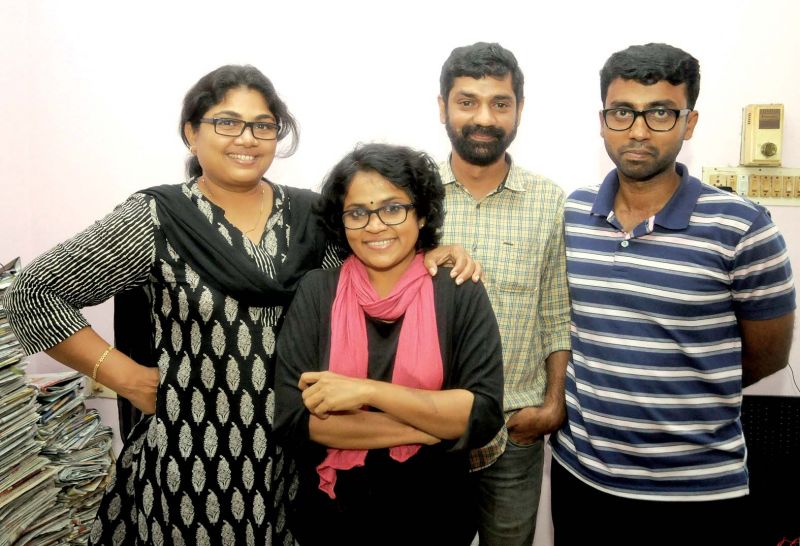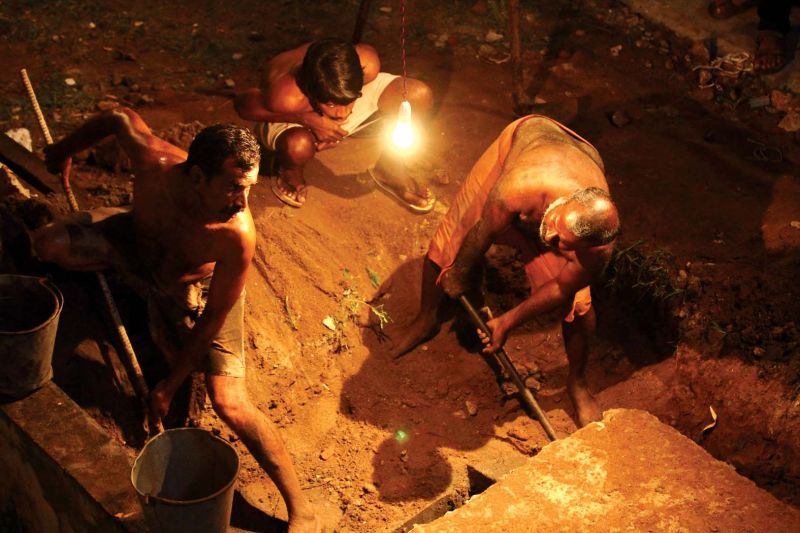Stinking truth that won Isaac's Oscar

As she begins to speak, a couple of honks go off. She is in a car, is that ok, Vidhu Vincent asks. The tone and the small cracks in her familiar voice are all the same, as before. Two state awards overnight for her film Manhole — best film and best director — have not changed anything, except possibly her hopes to do more. It’s Women’s Day and she has just finished talking to a group of students in a college at Thrissur, taking off to Kozhikode to work on her second film already — a subject she calls woman-oriented, with a woman producer and a technical crew Vidhu hopes to fill with women.
That she becomes the first woman to win the best director award, for Vidhu, is an acceptance bigger than anything. “By their decision to choose this film, the jury is sending out a message to the industry and the people. It becomes an inspiration, gives confidence and happiness to a lot of women. I am glad the declaration comes on Women’s Day too. There is something that Maya Angelo said — ‘Each time a woman stands up for herself, without knowing it possibly, without claiming it, she stands up for all women’. I have been inspired by a lot of women before me. So I should be one for those after me, I should contribute.”
Vidhu came across the subject of Manhole during her journalism days. She had first made a documentary on the men who went down the manholes to clean it, despite the laws of the land against it — called Vrithiyude Jaathi or Caste of Cleanliness. No Malayalis wanted to clean the dry toilets Kerala had in the 1920s, so people came from parts of Tamil Nadu. “They belonged to the Arundadyar caste. In Kerala, however they came to be called the Chakiliyar community. Even after we started using wet toilets, they continued to do the same work. The work supposed to be done by machines — scavenging, sweeping, cleaning...”
Umesh Omanakuttan, doing his research on law at the JNU, wrote the script. Even though manhole scavenging has been banned for years, there is not one case registered against the violations, Umesh says. People are dying, but no compensation is paid. According to the census, 13,000 people in Kerala are still involved in this task. But the state is in denial.
Not anymore. Finance Minister Thomas Isaac’s March budget says: “As per the national statistics, manual scavenging is still in existence in Kerala. The reason for this is that, in many places in Kerala, septic tanks are still being cleaned by manual labourers. Thakazhi had brought the life of the ‘Thottis’ (Manual Scavengers) into the public domain of Malayalis seven decades ago which Vidhu Vincent has portrayed in Manhole. An amount of '10 crore is earmarked for mechanising the cleaning of manholes and septic tanks. This waste needs to be carried to the septages for processing. An amount of '150 crore will be invested by KIIFB for establishing 14 septage units, one in each district.”
“That for us, was like getting an Oscar,” Vidhu says. “There is no bigger recognition than that. For a majority, cinema is an entertainment medium. But cinema is not just that. It becomes a medium to fulfil your political and social observations and tasks. I am glad that my film could make at least a small, narrow start in that direction.”
There have been a few criticisms on the selection of Vidhu’s film. Last year’s award-winning director Sanal Kumar Sasidharan, while appreciating the social cause Vidhu picked and lauding her efforts in not going with stars, wrote it doesn’t take forward the art form of cinema in any way. Vidhu responds: “What is aesthetics? I am not claiming that I made an art work designed on aesthetics. But who sets our aesthetics standards? There may be certain standards or restrictions which I broke. And some others I have ignored. At all times, there has been a rework and rethinking of such aesthetics. Some films we see are full of jerky shots. Each film desires a certain treatment. Beyond aesthetics, this film has made an impact. When it was shown at different places, there were so many different reactions. One man said, crying, he will wash the ‘theetam’ (human waste) with his tears. Someone else said they have told their maid they will wash their toilets themselves. It is important what wave of changes it has made. People are getting more out of it than we expected.”
She could have chosen to make it a documentary like before. But that reaches only a limited audience. “That’s the power of cinema. It is a popular medium; we can pass on very keen thoughts through the narrative.”



